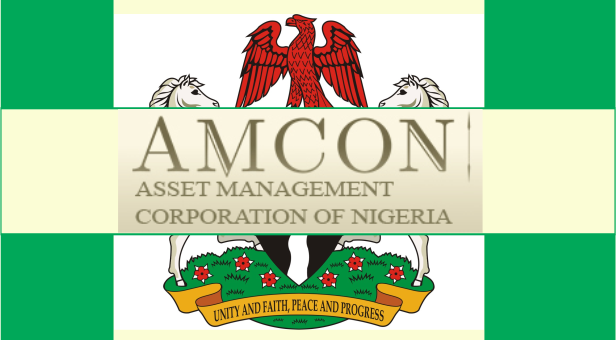- Keystone Bank Sold at N41b, Says AMCON
Managing Director/Chief Executive Officer, Asset Management Corporation of Nigeria (AMCON), Ahmed Kuru, has said the sale of Keystone Bank to new investors at N41 billion helped to boost the corporation’s performance in the last financial year.
He said AMCON had acquired 12,537 Non-Performing Loans (NPLs) worth N1.7 trillion from 22 financial institutions, following the 2009 banking crisis.
“Gross earnings also increased by 23 per cent to N341.8 billion, a 21 per cent increase in interest income to N42.6 billion as well as the N41 billion sale of Keystone Bank,” he said in a statement.
Kuru said AMCON was set to deal with the top assets in its portfolio and would take steps to recover its debts. He said AMCON’s obligors, especially politically exposed individuals and business heavyweights, who hitherto thought they were untouchable, would not be spared in the enforcement by the recovery agency.
According to him, AMCON has released its 2017 Audited Accounts. He said as a result of the new recovery strategy, the corporation is restructuring its processes to enable it go after the crop of recalcitrant debtors in a manner that has never been witnessed before, assuring that AMCON would not engage in any illegality.
He said: “I want Nigerians to understand that our assignment at AMCON is not just tough, but a daunting challenge so we actually deserve the support of the media and that of the public. I think people need to pity us because we are at that stage in the life of the corporation where we are dealing with the hardcore because the low hanging fruits have been dealt with earlier in the life of AMCON. I want you to understand that we are sitting on a substantial amount of assets, which we must one way or the other resolve on or before our sunset, which is around 2023/24.”
He reiterated that AMCON would pursue every obligor, especially the 350 debtors of AMCON who account for almost 80 per cent of the over N5 trillion huge debts, which must be recovered because AMCON borrowed to buy the Eligible Bank Assets (EBAs) during the first and second phases when it bought over the bad loans from the banks.
He continued: “As I said earlier, we will deal with some of those key assets very soon like the Peugeot Nigeria Limited in Kaduna, CDL, Aero Contractors, Arik Air and a host of others. But I must tell you, as we close in on these individuals and entities that owe us, I want you to know that they will call us names, they will blackmail us, they will threaten us, malign and harass us. However, I can tell you that hard as they will try, we will not be deterred in going about our normal duties as mandated by law”.
“But as we do, we ask ourselves first if the action will stand right before God Almighty; secondly, will the action be in our national interest and, is our action within the rule of law. If the answer to these three guiding principles is yes, AMCON takes decisions. It is nothing personal.”
On the 2017 Audited Account, which he described as better than that of 2016, he said though the corporation was not established to make profit like commercial banks, it could still return to profit this year after losses last year narrowed as the economy rebounded from its worst contraction in more than two decades.
The loss for the year through December improved to N16.4 billion ($45.3 million) from N164.9 billion the previous year. ‘’What that meant is that, if the economy continues with a positive outlook as it experienced in line with the expectations of the Federal Government, AMCON would be expected to return to profit at the end of the 2018 financial year,’’ he added.

 Billionaire Watch3 weeks ago
Billionaire Watch3 weeks ago
 Startups4 weeks ago
Startups4 weeks ago
 News4 weeks ago
News4 weeks ago
 News4 weeks ago
News4 weeks ago
 Bitcoin4 weeks ago
Bitcoin4 weeks ago
 Naira4 weeks ago
Naira4 weeks ago
 Forex3 weeks ago
Forex3 weeks ago
 Treasury Bills4 weeks ago
Treasury Bills4 weeks ago

























